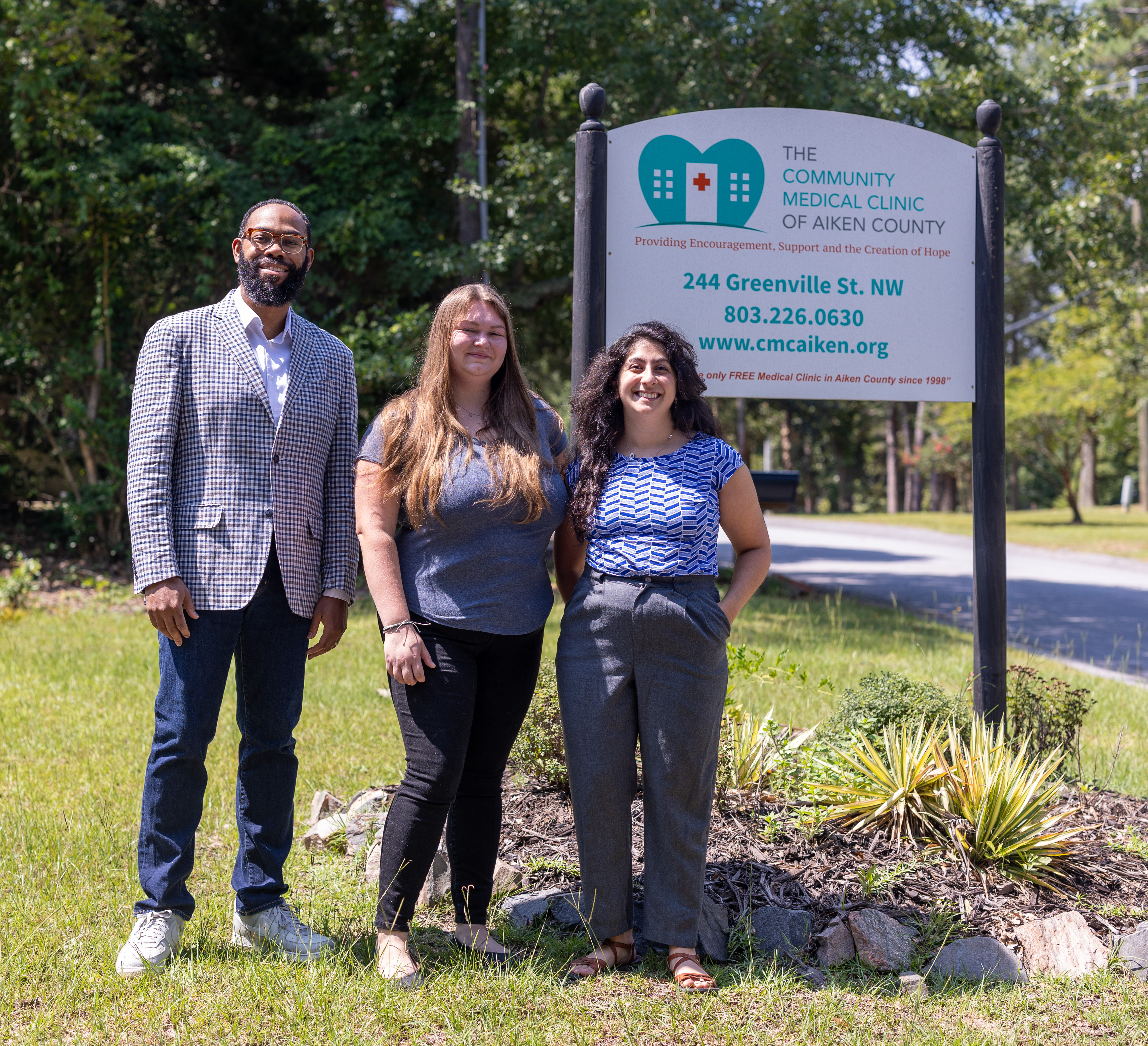Search
Browse All USCA.edu
From classroom to clinic: How a one grad student is transforming community mental health

Madison Lindsey’s internship at the Community Medical Clinic of Aiken County (CMCAC) is more than career enhancement.
The clinic, which offers free medical services to low-income residents, has become a beacon of integrated care, thanks to an innovative partnership led by Moussa Rogers, assistant professor of psychology at USCA, and Orion Jeter, the clinic’s executive director.
“Last year, we discussed integrated behavioral health and having someone who has mental health expertise at the center,” said Rogers.
The partnership allowed Lindsey to serve in a role that provides mental health support to patients who need the services but can’t afford the costs at primary care facilities. She is the first graduate student from USCA’s Clinical Psychology Program to serve in this capacity at CMCAC.
“Madison's presence helped to elevate the patients' experience,” Jeter said. “Having an onsite behavioral health professional that was readily available was great.”
After transferring to USCA in 2021, Lindsey graduated with a bachelor’s degree in psychology in May of 2023 and was soon accepted into the psychology master’s program.
Her passion for this field is deeply personal. Growing up in the inner city of Minneapolis, she witnessed firsthand the lack of accessible mental health resources, making her current work even more meaningful.
Jeter emphasized that integrated health is essential, as mental and physical health are interconnected and both are necessary for holistic care, an approach the clinic aims to achieve.
“I’ve really enjoyed this experience,” Lindsey said. “Most of the patients are dealing with chronic conditions and must meet specific criteria to receive care. Many are unhoused and lack access to insurance, healthcare, employment or mental health support.”
With this knowledge, Lindsey can assist patients with in-office support and connect them to vital resources around the Central Savannah River Area.
For many of the patients, it’s the first time they’ve had the opportunity to speak with a mental health professional. “Some may express hesitation or fear, but as soon as they’re in the room with her, they express how easy it is to talk to her,” Rogers said.
Over the past year, Rogers has stepped into the role of field placement coordinator within the Psychology Master’s Program. In this position, she supports graduate students by helping them secure placements in external agencies where they can gain valuable hands-on experience in the mental health field.
For Rogers, helping Lindsey with her internship brings back memories of her experiences working with patients. She highlighted the value of such partnerships, stating:
“Aiken County is doing much more to foster collaborative relationships, and I love that USCA is a community-oriented school. Many of the agencies our students work with often end up hiring them. We are very much a workforce-driven university, which is helping our community gain greater access to trained professionals.”
Lindsey directly reports to Rogers, who aids her in tapping sessions with patients while taking observant notes. “She mostly gives them psychological explanations as to why their experiencing certain mental health issues, the kinds of treatments that could be applicable and the different coping skills that could be applied,” Rogers explained.
“Patients are always like onions, and you have to peel back the onion to really understand what’s actually going on,” Lindsay said. “A lot of these people have always wanted to talk to someone, but it just wasn’t always feasible for them.”
Lindsey hopes to work with elderly patients facing dementia and other cognitive challenges. “Currently I really want to work with community mental health and helping those who are in need.”
For more information, contact us at news@usca.edu.